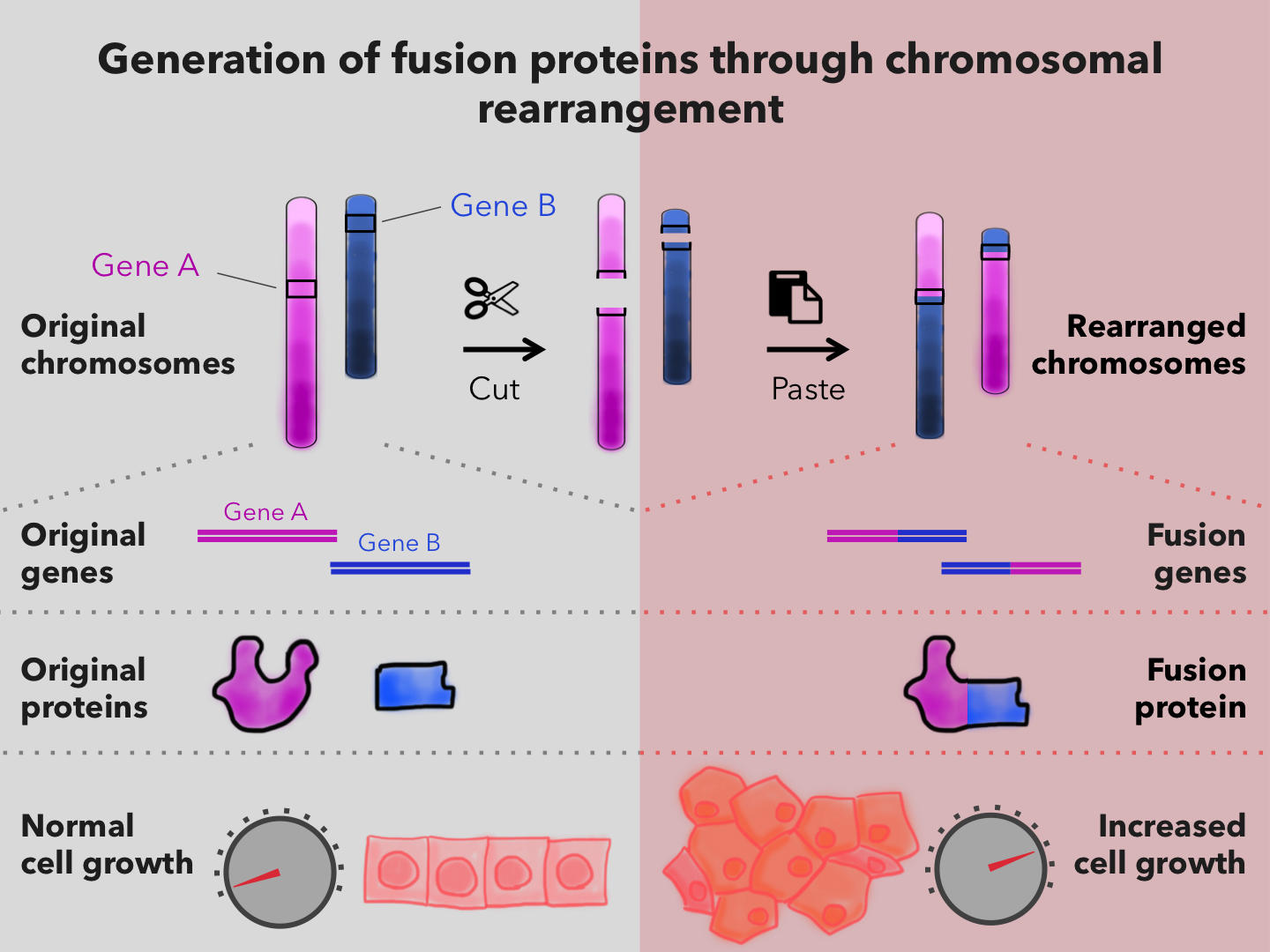The genetics of Cancer
Cancer is a genetic disease that means it is caused by mutations occurring in certain genes (modifications in the genetic sequence) that play a key role in controlling normal cell growth and division.
DNA is the molecule that stores the genes that make up our genetic code. Genes carry the instructions for producing proteins, which are the molecules that carry out most of the tasks within our cells. Genes affected by cancer may have different functions such as controlling cell division, repairing any damage that occurs in the genetic code or regulating programmed cell death.
There are different types of DNA mutation. Genetic code is comprised of a sequence of four different molecules called nucleotides (A, C, G and T). Some mutations only affect one nucleotide. For example, a nucleotide may have been replaced by another one or it may be totally absent. Other mutations involve larger sections of DNA and can include rearrangements, deletions or duplications of long segments. In other cases, the genetic alteration does not necessarily affect the DNA sequence. This is known as an epigenetic mutation. Thus, the addition or elimination of chemical markers, such as the methylation of DNA, can influence the expression of a specific gene.
In most cases, the genetic changes that lead to cancer are usually acquired throughout a person’s lifetime as a result of errors that occur in their genetic code (DNA) when their cells divide or suffer damage due to exposure to carcinogenic substances such as chemicals found in tobacco smoke, ultraviolet rays or certain foods. Genetic changes that occur after conception are called somatic (or acquired) mutations and they depend heavily on age and environmental factors (e.g., diet, exposure to the sun, sedentary lifestyle, obesity).
In a smaller percentage of cases, the genetic modifications that produce cancer are inherited from parents or grandparents if there are mutations in the cells linked to reproduction (eggs and sperm). Such modifications, called germline mutations, are subsequently found in all of the individual’s cells. Therefore, some people are born with a predisposition for developing cancer as all of their cells carry a certain mutation. This situation is known as hereditary cancer, in which case the cancer tends to develop at earlier ages and there is usually a history of cancer in their family.
Cancer cells generally acquire a large number of genetic changes that differentiate them from normal cells. These mutations are usually specific to a certain organ. Some tumours are the result of mutations, but they are usually caused by cancer and uncontrolled cell division. Therefore, as the cancer continues to grow, further changes will occur. Even the cancer cells within the actual tumour can also present different genetic changes. For certain cancers, the study of genetic alterations associated with cancer (somatic study) is currently used to develop a prognosis and predict the response to certain target-specific cancer drugs. This process forms the basis for the personalization of cancer treatment.
